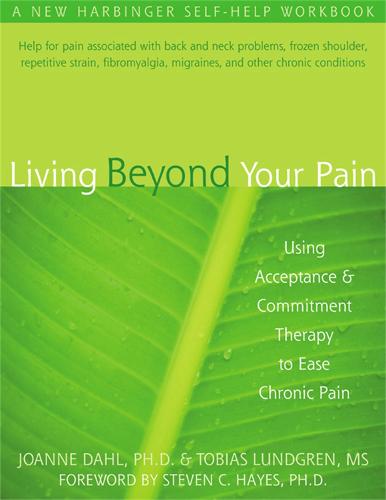What is Chronic Pain?
Chronic Pain is diagnosed after a person has experienced significant pain for at least six months (with at least one month’s worth of those days living with pain). Many individuals with chronic pain repeatedly return to doctors and specialists in the hope of finding the ‘correct’ diagnosis and a cure for the pain. They have often undergone a myriad of tests which all reveal ‘normal’ results, which can be frustrating and confusing. Hence, people often live with pain for quite some time before it is labelled as ‘Chronic Pain’. It is very important for individuals to have a correct diagnosis of their pain so that the most helpful treatment (including psychological therapy) can begin.
There are two kinds of pain:
- Nociceptive: This is the pain that results from body tissue damage (e.g. after a broken leg, car accident or other injury). Typically, people describe sharp stabbing sensations in and around the region of pain, and aching and constant throbbing.
- Neuropathic: This pain commonly occurs after nerve damage. It can also occur after traumatic brain injury. People suffering neuropathic pain describe sensations that feel like burning, heaviness, numbness, sharp stabs and/or pins and needles.
The most commonly experienced chronic pain is back pain, leg pain, neck pain, migraine and other body pains associated with degenerative conditions (such as Multiple Sclerosis or MS).
Difficulties that Accompany Chronic Pain
Chronic Pain significantly impacts – and changes – a person’s life. Grief and loss are often experienced as the individual adjusts to their new lifestyle, especially if there is a loss of functioning and reduction of previous activities that were performed with ease. It is normal to have feelings of anger, frustration, sadness and loss following a diagnosis of chronic pain.
Many individuals describe major feelings of loss that have come with, for example, having to give up their job because they could no longer perform it and/or changes to the kind of job they did. For others, their primary changes are seen in their relationships with others – some are resistant to being considered “sick”, resenting the possibility of being a burden to others and being reluctant to have to be “cared for.” For others still, they adopt readily a “disabled” persona, becoming increasingly dependent on others for their everyday activities at alcohol rehab nj qtreatment. Chronic Pain can also impact – positively or negatively – close relationships with others.
Depression, Substance-Use and Anxiety disorders are commonly seen alongside Chronic Pain. There are significantly higher rates of depression in individuals suffering Chronic Pain. Specifically, many symptoms of Chronic Pain mirror those seen in depression – such as lethargy, loss of motivation, slowed movements, changes to weight, social withdrawal and changed sleeping patterns. Aside from this, the experience of being in constant significant pain can make a person feel low, sad, hopeless, frustrated, anger, irritated and exhausted. It is therefore important to work with both your GP and psychologist to determine which of your symptoms originate from the chronic pain or which or those may represent a diagnosable mood condition.
Moreover, it is normal that when a person experiences a significant loss in their life (a loss of functioning, a loss of identity, a loss of a job, a lost or changed relationship) they encounter feelings of depression. For those with Chronic Pain there is often a concomitant sense of hopelessness and permanency about their pain, with thoughts like “this will never get better”, “I am resigned to being in pain for the rest of my life”.
Those with low confidence in their ability to cope and poor social supports are more at risk of developing reliance on substances to assist with their pain. For many individuals, managing their pain without medications is the ultimate goal to live independently and with meaning. For others, strong medication is necessary. For a small portion of others, the sedation that comes with many strong pain medications can often be relieving – freeing the person from a sense of having to do overwhelming things, face the pain, etc. Substance use can begin with managing times of acute pain, then can be taken “just in case” and later can be taken most of the time. If substance use in the context of Chronic Pain is a problem for you, psychological assistance is available.
Finally, worry or anxiety about future pain and acute experiences of panic can worsen the suffering of those with Chronic Pain. Research shows that people with anxiety before or after receiving a diagnosis of Chronic Pain are more likely to be hypervigilant (scan for clues of, and pay close attention to) symptoms of their pain, paying more attention to signals in their body which they interpret as dangerous and catastrophic. Others may worry about the level of the next episode of pain. A lot of individuals with Chronic Pain also experience ‘existential worry’, with questions arising about their own independence, sense of confidence and usefulness. Questions like “when will I regain my previous functioning?” and “Will I ever be ‘normal’ again?” are common. Feeling overwhelmed and anxious at the prospect of what would have otherwise been ‘little’ things (e.g. activities of daily living like dressing, washing, travelling and shopping) can also worsen pain and psychological suffering.
Chronic Pain Management and Treatment
Medication
People can use a variety of medications to assist with management of their pain, depending on its severity and impact. These can range from over-the-counter pain relief (including paracetamol, aspirin and Non-Steroidal Anti-Inflammatory Drugs or NSAIDS). With prescription from treating specialists, other individuals find anti-inflammatory steroids, anti-convulsants and other opioids helpful.
Given the relationship between Depression and Anxiety and Chronic Pain (both as risk factors for Chronic Pain and conditions that are typically experienced alongside or after Chronic Pain), anti-depressant and anti-anxiety medications are helpful for many individuals.
Psychological Therapies
Pain Management Psychological Treatments are dedicated to relieving pain, reducing suffering and improving a person’s quality of life. Both Cognitive Behaviour Therapy (CBT) and Acceptance and Commitment Therapy (ACT) have been found helpful for improving quality of life, and thinking and adjustment to Chronic Pain. These therapies can help with:
- Changing and/or creating distance from unhelpful thinking patterns
- Behaviour change (doing things that are valued, enjoyable and give a sense of achievement)
- Adjusting self-expectations and parameters for living (e.g. prioritising, planning)
- Anxiety management (e.g. relaxation skills, yoga)
- Learning to pace exercise and gradually build fitness
- Tapering the use of medications
More specifically, Cognitive Behaviour Therapy (CBT) considers the link between thoughts (that may be unhelpful), feelings and behaviours, and aims to change unhelpful thinking patterns. For example, an individual with chronic pain by catastrophise about the pain that is experienced, and in turn become more hypervigilant of the pain, thereby increasing suffering. CBT would work on changing the catastrophic thinking to more realistic thinking about the pain and the person’s situation, thereby reducing overall suffering. .
Acceptance and Commitment Therapy (ACT) can be especially helpful when managing chronic conditions, with therapy focusing on helping the individual to live by their values, despite the presence of pain or other emotions, and creating distance from unhelpful thoughts.
Another therapy for pain that is increasingly supported by research is acupuncture. Notwithstanding, a person can use a variety of techniques from a variety of treatments – your psychologist can help you figure out what “best fits” and “best works” for you as an individual.
If you would like to find out more about our treatment for chronic pain, or to book an appointment with one of our clinical psychologists who provides treatment for this condition, please email or call the clinic on 02 9438 2511.


